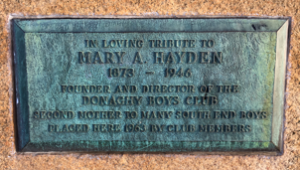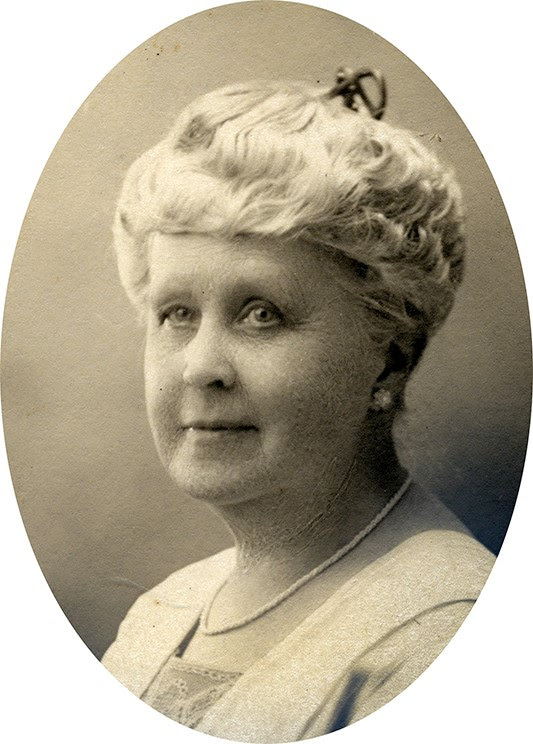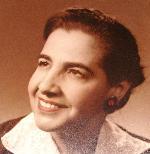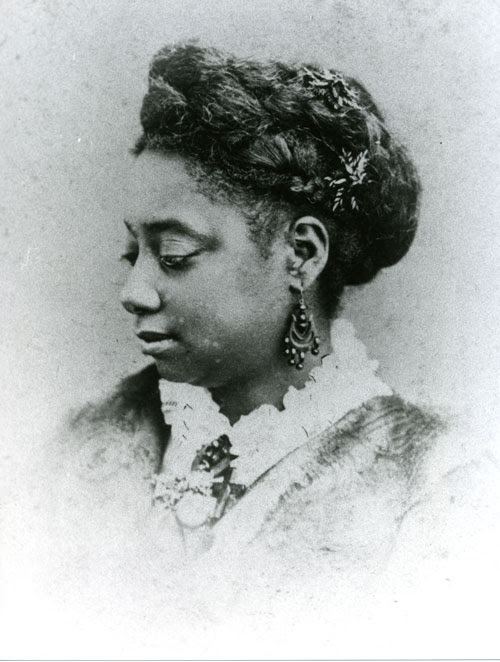A “second mother to many South End boys” in New Bedford, Mary Ann Flanagan Hayden (1873-1946) founded the Donaghy Boys Club, becoming the first female director of a Boys Club in America. She was recognized for her long service by the International Federation of Boys Clubs of America for her 18 years as the Donaghy Boys Club Director.
 In Loving Tribute to
In Loving Tribute to
Mary A. Hayden
Founder and Director of the Donaghy Boys Club
Second mother to many South End boys
Placed here 1963 by club members
This plaque in front of the John B. De Valles School in New Bedford commemorates the work of Mary Ann Flanagan Hayden (1873-1946), a lifelong community activist. The plaque, unveiled in 1963 by her grandson, James Hayden, was originally located at the Donaghy School.
Born in Fall River, Mary Ann moved with her husband, Michael Hayden to New Bedford in 1907. The couple had five children, Anthony, Lucile, Paul, Clare and James.
The Hayden children remembered their mother’s career with pride. Mary Ann Hayden started her community work at the De Valles School where she acquired dressmaking skills, learning to make a dress without a pattern, and in turn, teaching these skills to other women. In 1920 she started a club for boys at the Thomas Donaghy School on South Street, becoming the first female director of a Boys Club in America, for which she was paid $5.00 a week. From October to May boys aged 10 to 16 met four nights a week for athletics, ping pong and board games. The boys participated in wrestling and tumbling and even basketball in the school attic, as well as an annual field day for New Bedford schoolchildren.
In 1963, Standard-Times columnist Earle Wilson recalled, “There must be hundreds of men in all parts of New Bedford and many places far from this city who recall Mrs. Hayden, the Donaghy Boys Club and the fun they had there, as well as the lessons they learned in how to play the game fairly and squarely. . . . I personally can testify that magic and ‘readings’ were two forms they enjoyed.” He noted that several individuals and teams went on to win checker and chess championships beyond the city and region. He added, “Mrs. Hayden did thoroughly whatever she attempted. She was not a half doer. Having put her hand to the plow, she didn’t have time to look back! Whatever a boy in Donaghy Boys Club did, she encouraged him to do it to the best of his ability.” Judge George Neves Leighton, a Donaghy Boys Club boy who grew up to become a famed civil rights lawyer and was appointed to the U.S. District Court of the Northern District of Illinois in 1976, learned chess at the club. When he spoke about Mary Ann Hayden, he said, “No one has ever given me a greater gift than she did.” One of her “boys” had a plaque installed in the International Chess Hall of Fame in her honor, and she was recognized for her long service by the International Federation of Boys Clubs of America.
In 1925 Mary Ann Hayden had, unusual for a woman in those days, a separate listing in the city directory. She was Assistant in the Community Center Department of the New Bedford Public Schools. After funding for that ended she had a civil service position as supervisor of the girls and travelling sewing supervisor for seven playgrounds in New Bedford. As funding came and went, the indomitable Mary Ann Hayden did not give up. She was constantly organizing volunteers to make sure programs continued to run at the playgrounds.
Her husband Michael Hayden, a leading bowler in the New England Duck Pin league, became a proprietor of the National Bowling Alleys on Acushnet Avenue in New Bedford. After a few years, when the bowling alley failed, he became a travelling salesman, delivering coffee, tea and cocoa to local stores on horse and buggy, until the 1920s when he was given a company car. The Hayden children remembered living in several different rental homes and having many fun family adventures. When they lived over Kelleher’s Drug Store, several of the children became “soda jerks.” After Sunday Mass, they would walk to the New Bedford-Fairhaven Bridge where, if they were lucky, the bridge would open, and they could jump on, riding the bridge during the swing. On the Fourth of July they would light sparklers and watch the fireworks from the cupola on the roof of their apartment.
In her Standard-Times obituary March 26, 1946, Mary Ann was recognized as a “second mother to many a South End boy” and “beloved founder and for eighteen years superintendent of the Donaghy Boys Club.” In a speech in 1936, Earle Wilson said, “[Mary Ann Hayden] had a wise head and a good heart and between them they actuated the good work of her hands.”
Mary Howland Smoyer
Information from
- “The Chess Drum’s Historic Moments: The Honorable George Neves Leighton.” The Chess Drum, March/April 2004, http://www.thechessdrum.net/historicmoments/HM_marapr04.html.
- Hayden, James, grandson of Mary Ann Hayden. E-mail.
- Hayden, Michael. The Presence of the Past, The Ancestors and Descendants of Michael James Hayden (1869-1948) and Mary Ann Flanagan (1873-1946). 1996.
- Spinner Publications. “New Bedford’s Famed Civil Rights Lawyer.” SouthCoast Today, 1 May 2016, https://www.southcoasttoday.com/article/20160501/NEWS/160509978.
![[Mary Ann Hayden], c. 20th century, Photograph, Courtesy of Hayden Family Photograph of Mary Ann Hayden - an older woman with short grey hair and round glasses, she is wearing a floral print dress](https://historicwomensouthcoast.org/wp-content/uploads/2018/05/Mary-Ann-Hayden-1873-1946-1-672x672.jpg)




